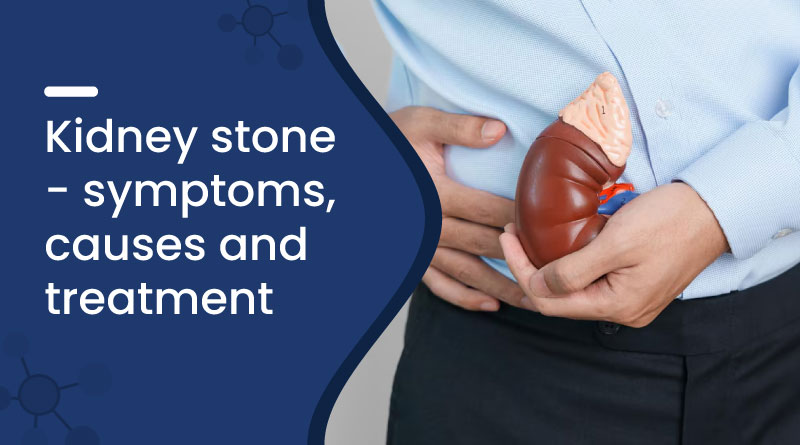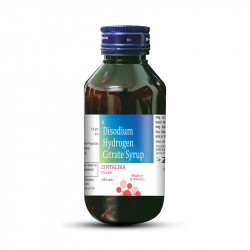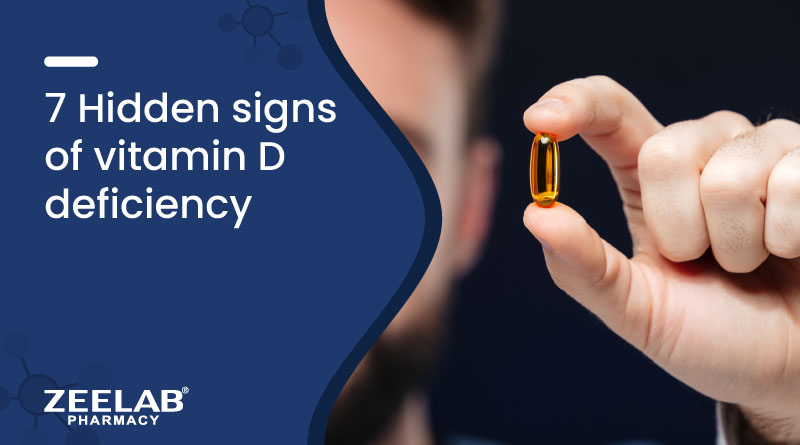Kidney Stone - Symptoms, Causes and Treatment


Kidney stones (renal calculi, urolithiasis, or nephrolithiasis) are hard forms of minerals and salts that form over time inside your kidneys. Kidney stones usually don’t cause any permanent damage or, but can be very painful if they move and get stuck in the urethra. Passing out kidney stones can also be painful.
Symptoms of Kindey Stones
- Severe Pain: Often described as sharp and intense, typically in the lower back or side, and may radiate to the lower abdomen and groin.
- Painful Urination: A burning sensation or pain when urinating.
- Frequent Urination: Feeling the need to urinate more often than usual.
- Blood in Urine: Urine may appear pink, red, or brown.
- Cloudy or Foul-Smelling Urine: Urine may look cloudy or have an unpleasant odor.
- Nausea and Vomiting: Feeling sick or vomiting, often due to pain or as a result of the kidney stone affecting the digestive system.
- Fever and Chills: If an infection is present along with the kidney stone.
- Difficulty Passing Urine: The stone may cause a blockage, making it hard to pass urine.
Causes of Kidney Stones
Kidney stones can form due to the diet you follow, excess body weight, certain medication and supplements, some medical conditions, and if someone in your family has had stones. Kidney stones often don’t have a definite single cause, although several factors may put you at risk. Kidney stones are formed when your urine contains crystal-forming substances in excess.
- Dehydration: Not drinking enough water can lead to concentrated urine, which increases the risk of stone formation.
- Diet: High intake of certain foods, such as those rich in oxalates (e.g., spinach, nuts), salt, or animal proteins, can contribute to stone formation.
- Genetics: A family history of kidney stones can increase your risk of developing them.
- Medical Conditions: Certain conditions, like hyperparathyroidism, diabetes, or gout, can lead to stone formation.
- Obesity: Being overweight or obese can affect kidney function and increase the risk of stones.
- Digestive Disorders: Conditions like Crohn's disease or gastric bypass surgery can affect the absorption of calcium and other nutrients, leading to stone formation.
- Medications: Some medications, including diuretics and certain antacids, can contribute to kidney stone formation.
- Immobility: Extended periods of immobility or bed rest can lead to the release of calcium from bones, which can then form stones in the kidneys.
Kidney Stones Pain Location
- Flank Pain: Pain in the back and side, just below the ribs, is often the most common. This pain can be intense and cramp-like, and it may come in waves.
- Lower Abdominal Pain: Pain can radiate to the lower abdomen and groin area, particularly if the stone moves closer to the bladder.
- Groin Pain: As the stone moves through the ureter, it can cause sharp pain in the groin area.
- Pain During Urination: If the stone is near the bladder, you might experience pain or a burning sensation during urination.
Types of Kidney Stones
There are different types of kidney stones, if you know what type of kidney stone you have; it can help you to take preventive measures for further avoiding it.
- Calcium Stones — Most of the stones are calcium stones in the form of calcium oxalate. Calcium Oxalate is a substance made by your liver on daily basis or absorbed from your diet. Certain vegetables and fruits, chocolate, and nuts have high oxalate content.
- Uric acid stones — Uric acid stones can form in people who have gone through chronic diarrhea and lost too much fluid, those who eat a diet with high protein, and those who are diabetic.
- Struvite stones — This type of stones form due to urinary tract infection. Struvite stones can grow fast and become large, sometimes with fewer symptoms or little warning.
- Cystine stones — Cystine stones form in people with a disorder known as cystinuria. In people with this disorder, kidneys excrete too much of a specific amino acid which results in the formation of stones.
When to See a doctor
You should see your doctor if you have any of the signs and symptoms that worry you. You should look for medical attention if you experience
- Severe pain that you are unable to sit still or be in a comfortable position.
- Nausea and Vomiting along with pain.
- Never and chills with pain.
- Difficulty in passing urine.
- Blood in the urine.
Kidney Stone Treatment
Kidney Stone treatment without any operational measures is what most people suffering from kidney stones look for. There are many kidney stones treatment for the home which can be used apart from medications and operative measures.
Kidney stones if left untreated may cause a lot of physical discomforts. If kidney stones are causing pain, you can use pain killers for sooner relief but you can’t use painkillers and antibiotics on a daily basis for a longer period of time. It is necessary to remove kidney stones out of the body to get complete relief.
Home remedies for Kidney Stones
- Water — Dehydration is one of the main reasons for the risk of kidney stones. Drink a lot of water to pass kidney stones through urine. Usually drinking 8 glasses of water is recommended, but strive for 12 glasses a day to clear your kidney.
- Lemon Juice — You can drink lemon juice or add lemon juice to water often. Lemon contains citric acid, a chemical that prevents calcium stones from forming. Citric acid also breaks small stones, allowing them to pass more easily.
- Basil (Tulsi) Juice — Basil (Tulsi) contains acetic acid which breaks kidney stones and also reduces pain. It is also full of nutrients that are good for the body. Basil juice also has antioxidant and anti-inflammatory properties which are good for kidney health.
- Apple Cider Vinegar — You can also use apple cider vinegar as it contains citric acid. Citric acid helps in dissolving kidney stones.
- Pathri Tor Syrup — Pathri Tor Syrup as the name sounds is used for crushing kidney stones and it also is used for treating urine infection. This is one of the best natural medicine for kidney stones available in India. This medicine contains natural ingredients such as Aparmarg (Achyranthes Aspera) 40 mg, Punamava (Boerhavia diffusa) 30 mg, Gokhru (Tribulus Terrestris) 55 mg, Kusha (Desmostachaya bipinnate) 40 mg, Kash (Saccharum spontaneum) 45 mg, Pasana bhed (Bergenia ligulata) 80 mg, Varuna (Crataeva nurvala) 60 mg.
- Zintalika- Zintalika is a Disodium hydrogen citrate syrup that is used to treat and prevent kidney stones. This medicine can be taken with or without food. It lowers the production of uric acid in the body which helps in preventing kidney stones.
Prevention is always better than cure, it is better if you keep checking on your health, eat a healthy diet for your kidneys, and take necessary medications to prevent stones formation. Stay healthy, stay happy. After all, health is wealth…
Facebook, Twitter, and Instagram to stay connected for health-related information. To get affordable medicines online, you may visit our website zeelabpharmacy.com, alternatively you can also place your order on call @ +91 9896112555
Disodium Hydrogen Citrate (1.4 gm/5ml)
100 ml Syrup in 1 bottle
Aparmarg (40 mg) + Punarnava (30 mg) + Gokhru (55 mg) + Kusha (40 mg) + Kash (45 mg) + Pasana Bhed (80 mg) + Varuna (60 mg) + Kulath (20 mg) + Manjishta (60 mg) + Ajwain (10 mg) + Mulaka (30 mg)
225ml in 1 bottle
Recent Blogs
Disclaimer : Zeelab Pharmacy provides health information for knowledge only. Do not self-medicate. Always consult a qualified doctor before starting, stopping, or changing any medicine or treatment.


















 Added!
Added!